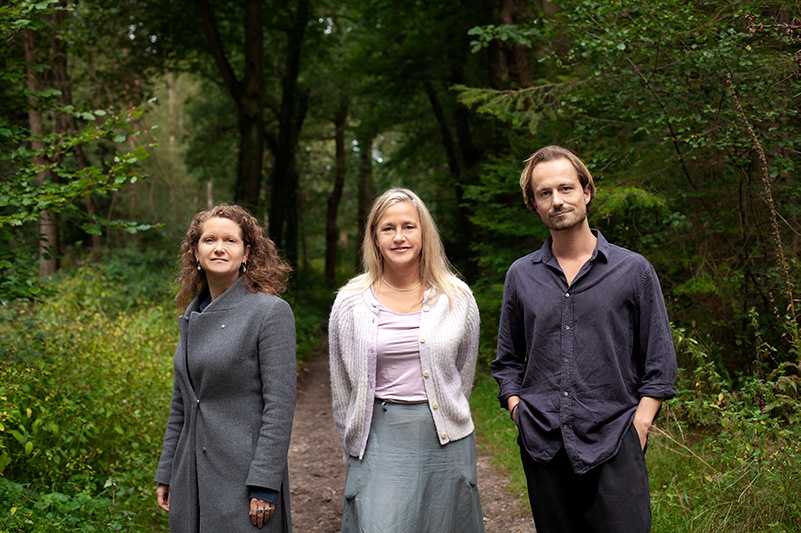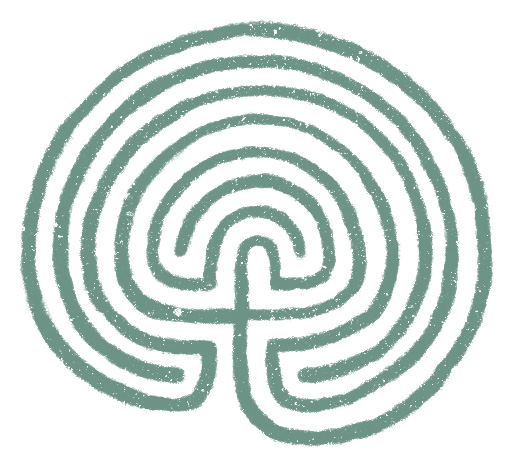How Senz helps
Senz offers a short, intensive, and comprehensive program of treatments for anxiety and depression through our multidisciplinary team.
Intensive Treatments
What treatments do we offer for anxiety and depression?
At Senz, you follow on average four months of treatments to tackle your anxiety or mood issues. Your treatment package may include various components, both on an individual and group level. Some elements are standard for everyone, while others are offered only when specifically indicated. We provide treatments only if we believe they will genuinely benefit you. The treatment program and its intensity will be tailored to your needs in consultation with you. The most intensive part of the program lasts for 2 months.
All treatments are set under the supervision of certified BIG-registered professionals.

Program components
Individual treatment for anxiety and depression
Standard individual treatment
Lifestyle. Lifestyle plays a crucial role in recovery from anxiety or depression. Together with Senz, you will discuss your nutrition, exercise, sleep, and stress management. The goal is to identify helpful changes to achieve your goals.
Psychomotor Therapy (PMT). This component teaches you how specific exercises and movements can alleviate psychological issues. You learn to manage emotions and stress, improving both your physical and mental health.
Twice-weekly Therapy Sessions. During treatment, you meet with a therapist twice a week. These sessions employ various therapeutic approaches to work toward your goals, including Cognitive Behavioral Therapy (CBT), Acceptance and Commitment Therapy (ACT), and Interpersonal Therapy (IPT).

Optional individual treatment (when indicated)
Additional Sessions. Next to the scheduled sessions in your treatment package, we can plan extra sessions, such as trauma therapy or meetings involving your partner, family, or others important to you.
Psychiatrist. At Senz, the psychiatrist is part of the multidisciplinary team. This means the psychiatrist is involved in intakes and may provide psychotherapy and group therapies. Additionally, psychiatric consultations can address medication-related questions.
Ketamine Assisted Psychotherapy (KAP). KAP involves inducing an altered state of consciousness with ketamine, allowing you to explore new perspectives and deeper experiential processes. This therapy can help address persistent psychological complaints, such as depression or anxiety.
Group treatment for anxiety and depression
Standard group treatment
- Running Therapy. Running therapy involves physical activities like walking or jogging to alleviate psychological issues like stress, depression, and anxiety. It combines physical activity with therapeutic guidance, improving both mental and physical health.
In addition to Running Therapy, you can also participate in one of the following group therapies:
- Cognitive Behavioral Therapy (UP-CBT). This group focuses on improving emotion regulation and reducing avoidance behavior—core mechanisms in emotional disorders. The treatment is based on the Unified Protocol developed by Barlow, which integrates techniques from Cognitive Behavioral Therapy (CBT), Mindfulness, and Acceptance and Commitment Therapy (ACT). You will work with a workbook and engage in exercises both during group sessions and at home to develop skills that help you approach your emotions and symptoms in a new way.
- Mindfulness-Based Cognitive Therapy (MBCT). MBCT is an evidence-based form of therapy that combines elements of cognitive behavioral therapy with mindfulness. It helps individuals become more aware of recurring thoughts, emotions, and automatic patterns, particularly in the context of depression and stress. The goal of MBCT is to create greater insight and distance from negative thinking patterns, without getting caught up in them. Through mindfulness, you learn to be present in the here and now with an open and kind awareness, rather than remaining stuck in worry or self-criticism. MBCT is an experiential therapy that supports you in building resilience and (re)finding balance in your daily life.
- Acceptance and Commitment Therapy (ACT). ACT is a modern form of behavioral therapy that helps individuals respond more flexibly to psychological challenges, obstacles, and difficult emotions. The aim of ACT is to enhance psychological flexibility—the ability to adapt to difficult thoughts, emotions, and situations while making choices that align with your personal values. In other words, ACT helps you reconnect with what truly matters to you and supports you in taking concrete steps toward a meaningful life. It is an experiential therapy that helps you (re)discover your path.
- Body-Oriented Emotion Regulation (SP). This group is based on techniques from Sensorimotor Psychotherapy and focuses on awareness, regulation, and coping with emotions and bodily experiences. Participants explore how traumatic experiences can affect the body. Sessions center around noticing, tolerating, and regulating physical sensations using body-oriented exercises, with attention focused on the ‘here and now’. The group does not discuss the traumatic events themselves.
- CBT-I (Cognitive Behavioral Therapy for Insomnia).
CBT-I is a treatment method for sleep problems. It targets the negative thoughts and habits surrounding sleep. This therapy combines cognitive strategies with behavioral changes to help establish a healthy sleep routine.

Senz focus program
In addition to the intensive core program, Senz now also offers a program for those who find a more relaxed approach sufficient.
For approximately 3 to 4 months, clients can participate in one group therapy session from our program and also speak with an individual therapist.
1 group + 10 individual sessions
Group therapy consists of 8 to 10 sessions, depending on the type of therapy.
The following types of group therapy are available: Acceptance and Commitment Therapy (ACT), Mindfulness-Based Cognitive Therapy (MBCT), or Cognitive Behavioral Therapy (CBT).
Ketamine Assisted Psychotherapy (KAP) treatment
What is KAP?
At Senz, you can enrol in Ketamine Assisted Psychotherapy (KAP) to combat your anxiety or depression. During KAP, ketamine induces an altered state of consciousness, opening you up to new perspectives and deeper, experiential processes. The therapy emphasizes bodily and non-verbal experiences in the moment. This treatment has proven successful in the United States and may help break persistent psychological issues such as depression or anxiety.
Is KAP a suitable treatment for you?
Whether KAP is a suitable treatment depends on several factors. First, we can only indicate this treatment if you have persistent depressive symptoms that persist after previous treatment. You must have already received therapy and taken two antidepressants to be eligible. Furthermore, the treatment must, of course, be safe, so a medical screening will be conducted by a psychiatrist. We will need your medical information for this. Heart problems, for example, can be a contraindication. In addition to the medical screening, we also need to know if you have a history of addiction and/or psychotic symptoms, or other serious mental health disorders.
What is ketamine?
Extensive research is currently being conducted on ketamine’s effects. Studies show that ketamine puts our brain in a state where it is particularly receptive to learning and new experiences, potentially leading to deeper therapeutic insights. Ketamine promotes neuroplasticity, enabling the formation of new neural connections, especially in areas responsible for emotional regulation and cognitive functions. This process can accelerate brain activity and support recovery from mood conditions. Many describe their ketamine experiences as deeply spiritual or emotional, often fostering greater acceptance and meaning in life.
Ketamine is a well-known drug primarily used as an anesthetics. However, research shows that ketamine, under the right conditions, is also effective in reducing symptoms of depression. An important advantage is that ketamine treatments have minimal to no side effects. When administered in a specialized treatment center like Senz, the risk of addiction is as low as possbile, and physical side effects are virtually absent.
KAP session
During a KAP session, you will relax yourself in a comfortable reclining chair in a quiet room. A doctor conducts a medical check and administers the ketamine intravenously. Throughout the session, a therapist remains with you to provide guidance. The ketamine infusion induces an altered state of consciousness while you remain aware of the room and the therapist’s presence.
The therapist supports you in exploring, deepening and clarifying your experiences. A KAP session lasts approximately two hours in total. After a KAP session, you are not allowed to participate in traffic.
KAP therapy can be a profound and often surprising experience. You can discover new perspectives and emotions that can help you in your journey to recovery. Do you want to know more about this?
Preparation
When Ketamine Assited Psychotherapy is indicated, we will do an extensive preparation together. You will be introduced to the KAP room, where we will explain what will happen and you will receive tips about preparation and clothing, for example. This way we ensure that you know exactly what will be going on and who will guide you. If you have any questions afterwards, you can always contact your therapist.


